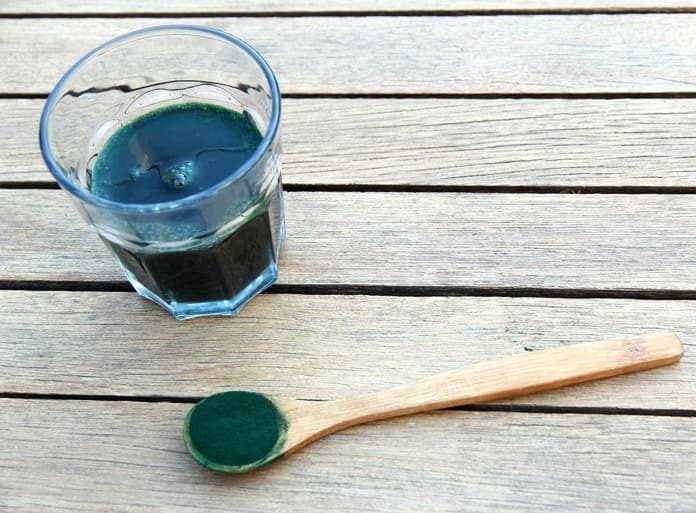Italian researchers have tested different compounds found in digested spirulina to find out if any of these substances can lower high blood pressure.
Spirulina is a nutrient-rich preparation of dried bacteria.
There is some scientific evidence that eating spirulina can boost the immune system and help treat heart disease. However, no one knows how it does this.
If scientists understood how it worked, then they might be able to make new, more effective drugs.
There is a pressing need for drugs that can treat high blood pressure and other conditions that can lead to heart disease.
A group of Italian researchers has been studying spirulina, hoping to better understand how it could lower blood pressure. They published their results in the journal Hypertension.
Spirulina can be digested into different peptides
The researchers treated spirulina with digestive enzymes.
This should mimic how it is broken down into different components in the human digestive tract. They identified a number of peptides in this digested mixture.
Peptides are small protein fragments.
They tested these peptides on blood vessels that had been surgically removed from mice.
One of these peptides, which they named SP6, was able to relax these isolated blood vessels. When blood vessels are relaxed, they widen, allowing more space for blood to flow through.
This means that blood pressure tends to drop.
Feeding spirulina SP6 to rodents can lower their blood pressure
Rodents, such as mice and rats, are often used in laboratories to test the effectiveness of drugs that could potentially lower blood pressure.
The researchers fed peptide SP6 to normal, healthy lab mice.
SP6 lowered systolic blood pressure by more than 10% in mice. The effect started two hours after SP6 was consumed, and lasted for an additional six hours.
Other spirulina peptides didn’t have any effect on blood pressure.
They also tested SP6 on rats with high blood pressure.
The type of rats that they used will spontaneously develop high blood pressure, so they are a good model for humans who are genetically prone to developing high blood pressure.
Blood pressure started to drop two hours after the rats consumed the peptide, and, as in mice, remained low for at least another six hours.
At its lowest point, the blood pressure in the treated rats approached healthy ranges.
A promising treatment that needs more study
There have been many claims about the health benefits of spirulina.
This study looked at the different digestive products of spirulina and identified one that, all by itself, seemed to lower blood pressure.
One day, SP6 could be used by human patients to complement existing medicines that lower blood pressure.
However, this study only looked at the effects of single doses of SP6 over very short time periods.
Future studies need to find out if this peptide can keep blood pressure low when taken many times, over long time periods.
And, obviously, there is a need for more tests to determine the safety and effectiveness of SP6 in human patients.
Written by Bryan Hughes, PhD
Relevant topics that may be of interest to you:
- Regular use of sleeping pills may increase the use of blood pressure medication
- Can a plant-based diet affect blood pressure?
- What Should Your Blood Pressure Target Be?
- Controlling blood pressure in older individuals may increase mortality rates
- A New and Improved Sunscreen with an Old Blood Pressure Drug?
References:
- Carrizzo, A., Conte, G. M., Sommella, E., Damato, A., Ambrosio, M., Sala, M., Scala, M. C., Aquino, R. P., Lucia, M. D., Madonna, M., Sansone, F., Ostacolo, C., Capunzo, M., Migliarino, S., Sciarretta, S., Frati, G., Campiglia, P. & Vecchione, C. Novel Potent Decameric Peptide of Spirulina platensis Reduces Blood Pressure Levels Through a PI3K/AKT/eNOS-Dependent Mechanism. Hypertension (2018). https://www.ahajournals.org/doi/10.1161/HYPERTENSIONAHA.118.11801
- From a molecule of natural origin new therapeutic opportunities against hypertension. Istituto Neurologico Mediterraneo Neuromed I.R.C.C.S. https://www.eurekalert.org/pub_releases/2018-12/inmn-fam122718.php



